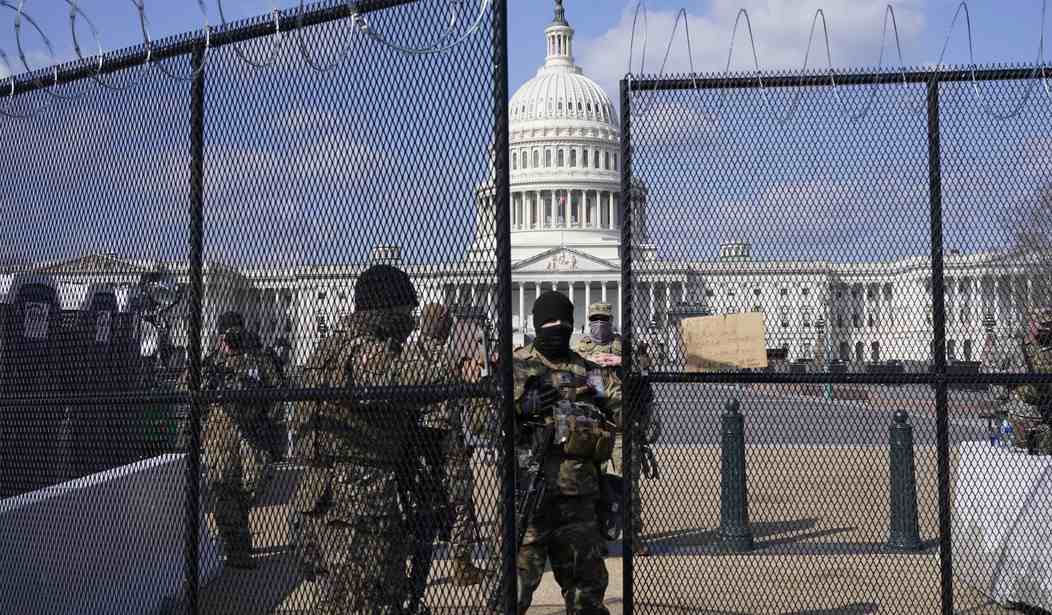For DC residents and members of Congress, I’m sure they want the fortifications around the US Capitol to come down. They were set up after the January 6 riot. They remained until after the second Trump impeachment—and they remain a fixture of the city now. And they’re not coming down. The projection is to keep them up for months. Then, there are reports of no timeline for when the fortifications will be removed.
Fence update: The Architect of the Capitol’s office says the razor wire is NOT coming down. They are replacing the current fencing with different anti-climb fencing, and then the razor wire will go back up on the new fences once those are in place, per @EleanorNorton office. https://t.co/oFILgPT728
— Haley Talbot (@haleytalbotnbc) March 1, 2021
Recently, there was some chatter about the fencing being removed. That wasn’t the case. They were merely replacing the old wire and adding new ones, like anti-climbing fencing as well. To further dampen the mood, the latest security review calls for more police and a type of mobile fencing to be installed (via NPR):
The Jan. 6 insurrection exposed major Capitol security failures, and a review by a task force led by retired Lt. Gen. Russel Honoré is urging Congress to revamp its security apparatus by adding hundreds of new police officers, creating a quick reaction force and installing a new fencing system.
Honoré and other members of the task force hosted three bipartisan briefing sessions for lawmakers on Monday at the Capitol to discuss their findings and draft recommendations.
The six-week review, which ran through Friday, also highlighted the vast shortfalls that Capitol Police faced during the siege. Officers were understaffed and under-resourced, left without earpieces or riot gear in many cases as they fought the Capitol attackers, the report said.
[…]
The 13-page report recommended that the Capitol Police should hire 854 more officers — adding to their current total of more than 2,000 law enforcement personnel.
Other recommendations include:
The creation of a "quick response force," a rapid response force that could be mobilized quickly to the Capitol for emergencies. The team would be created from area law enforcement agencies or members of the National Guard.
The replacement of the current fencing system be replaced with the installation of a mobile and retractable fence instead. It also recommends that the Capitol's system of cameras, sensors and alarms should be integrated.
The expansion of the Capitol Police's Civil Defense Unit, a specially trained team that monitors and responds to illegal activities during First Amendment assemblies and other mass demonstrations, be moved from availability only during special events to become a dedicated unit on duty any time Congress is in session.
The need for additional equipment and support, such as earpieces and body cameras for all officers. It also recommends expanded K9 teams and reinstituting mounted patrol teams that were dismantled in 2005.
The creation of a new federal agency similar to the Department of Homeland Security to coordinate law enforcement in the larger Washington D.C. area, including federal agencies such as Capitol Police, U.S. Park Police and U.S. Secret Service plus state and local law enforcement departments.
The need to empower the U.S. Capitol Police Chief with sole authority to call in military backup, rather than have to await approval from the Capitol Police Board which caused delays on Jan. 6. In addition, the chief should have the ability to appeal rejections for backup during advanced planning to House and Senate leadership.
The need to give the D.C. National Guard Commander new powers to order emergency backup to the Capitol without seeking additional approval, which delayed their response by several hours during the attack.
The modification of the Capitol Police's member protection detail team, known as its Dignitary Protection Division. It recommends the creation of a new office to consolidate lawmaker travel and bring all member district offices and homes under the same, comprehensive security plan.
Recommended
Some of the tweaks are fairly common sense, but the civil defense unit being used to monitor activities during constitutionally protected free speech rallies…let’s say there should be many questions. The rapid response unit is frankly something we probably should have had for years to secure the Capitol, but the media will always harp on the phantom QAnon threat as a reason to justify new measures that will certainly be questionable or ripe for abuse.
Yes, QAnon is real. No, they’re not an existential threat. CNN has done more damage to this country through their misinformation campaigns, which Tucker Carlson examined thoroughly last week. And yes, March 4 was supposedly going to be a tense day security-wise. Nothing happened.
U.S. Capitol Police say they have obtained information that "shows a possible plot to breach the Capitol by an identified militia group on Thursday, March 4" pic.twitter.com/B2V7fsLHK9
— Breaking911 (@Breaking911) March 3, 2021
UPDATE: It's official. They want a permanent occupation of DC.
Capitol police chief calling for permanent fencing and troops around US Capitol pic.twitter.com/GaOH6ly2pw
— Stephen L. Miller (@redsteeze) March 9, 2021

























Join the conversation as a VIP Member